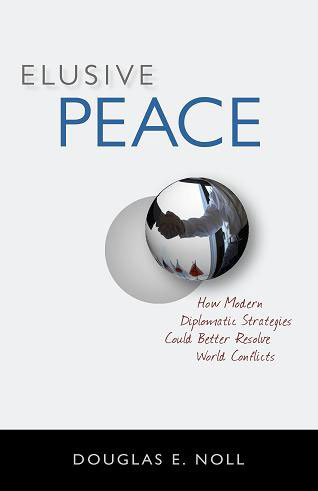Excerpt from Chapter 6 - Family, Friends, and Not Friends
When the conflict involves competing social identities, mediators must understand the prototypes and stereotypes that are coming to the table. Negotiators are usually selected because they are prototypes of their groups. They hold many of the values and characteristics of the groups they represent and are closely aligned with their leaders. When warring groups come to a peace conference, opposing prototypes are facing each other in the discussions. They do not see each other as prototypes, however. They see themselves as representative of the norm (a cognitive bias) and see their opponent as a stereotype of the enemy. Instead of seeing a complex human being across the table, they see a person they can only characterize by stereotype: evil, violent, dishonest, corrupt, venal, or an infidel. Often, the stereotype is so strong that it creates an emotional reaction, and people commonly resist being in the same room with their stereotypical enemy.
Political solutions alone do not resolve social identity conflicts. This has been the major failing of most peace talks—the mediators have focused on a political solution without considering the underlying conflict dynamics. There are two reasons why political solutions to war do not work. First, the political leaders have developed power based on stereotyping the enemy. When leaders will not serve their people by providing improved standards of living, they manipulate symbols to appeal to popular emotions. The easiest way to do this is to create foreign or domestic “enemies” to blame for the country’s problems. In a September 21, 2001 interview with Voice of America, Mullah Omar said, “Almighty God... is helping the believers and the Muslims. God says he will never be satisfied with the infidels. In terms of worldly affairs, America is very strong. Even if it were twice as strong or twice that, it could not be strong enough to defeat us. We are confident that no one can harm us if God is with us.” Omar’s power derives from the jihadist salafi (radical fundamentalist Islam) hatred of western culture. Asking him to give up that hatred is like asking him to stop breathing because it is the source of his power.
True peace means dismantling the stereotypes, which means dissipation of the leader’s power base. This presents major problems for international mediators. Many leaders feel emasculated when their groups are asked to reintegrate with society. Peace requires that power based on social identity be replaced with power based on legitimate authority, preferably through democracy. If a leader feels threatened by his loss of power, position, and privilege, he will resist peace efforts and renew the social identity conflict. This is exactly what is happening in Afghanistan in mid-2010. As the counter-insurgency is proving ineffective, the U.S. and the Karzai government are expressing interest in a “negotiated” settlement with the Taliban. Mullah Omar is essentially laughing at the idea, confident in his position of strategic power in Afghanistan and Pakistan. Negotiation would imply a reduction in his current sense of power, so he is not motivated to come to the table.

